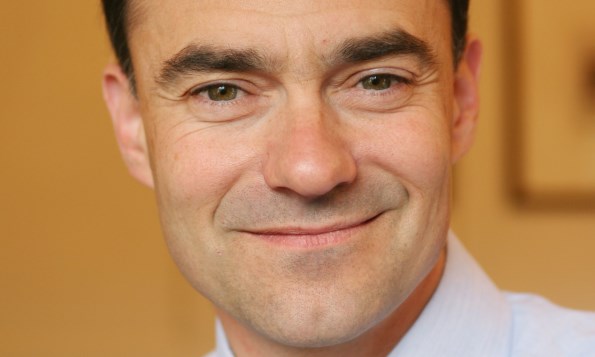ARM CEO Warren East Steps Down After 12 Years, Enormous Growth
Warren East, the current CEO of ARM Holdings, has announced that he'll step down from the CEO position as of July 1. His replacement, ARM's Simon Segars, is an engineer who worked on some of ARM's earlier processors before stepping up to become company president. East's decision to step down is a bit surprising; the ARM executive told Reuters that "After you've been doing it for 12 years you do get a bit tired... and think "Maybe that's a bit of a brake on the business and somebody else should have a go."
East's own "go" was downright impressive. Twelve years ago, the company was one of a number of microcontroller developers. Today, its products power most of the world's smartphones and are poised to enter the server and personal computing markets. The company's revenues have grown along with its aspirations, ARM controllers were at the heart of some 8.7 billion shipping products last year, compared to just 430 million the year East took over the CEO position.

East's answer isn't as odd as it sounds. ARM's successes in the mobile industry have been enormous, but the company's next generation of hardware will attempt to extend that success into markets where Intel and x86 processors have historically dominated. Despite occasional pundit claims to the contrary, the battle here is going to be brutal. The so-called power-disadvantage of the x86 architecture is a function of device performance targets, not any intrinsic factor of the ISA.
Intel and ARM have been closing to grips for several years as ARM CPU performance increased while x86 power consumption dwindled. The skirmishes of 2013, sparked by the launch of Intel's Medfield, are about to become a war -- and East simply may not have felt he wanted to handle the battle. It's a complex situation to negotiate -- ARM's tremendous catalog of licensees and hardware development give the company a great deal of flexibility, but they also make a multi-pronged battle with Intel difficult to manage. Apple's Swift, Samsung's Exynos, Nvidia's Tegra, and Qualcomm's Snapdragon parts are all poised to tangle with Intel -- but they're also duking it out with one another.
East's own "go" was downright impressive. Twelve years ago, the company was one of a number of microcontroller developers. Today, its products power most of the world's smartphones and are poised to enter the server and personal computing markets. The company's revenues have grown along with its aspirations, ARM controllers were at the heart of some 8.7 billion shipping products last year, compared to just 430 million the year East took over the CEO position.

East's answer isn't as odd as it sounds. ARM's successes in the mobile industry have been enormous, but the company's next generation of hardware will attempt to extend that success into markets where Intel and x86 processors have historically dominated. Despite occasional pundit claims to the contrary, the battle here is going to be brutal. The so-called power-disadvantage of the x86 architecture is a function of device performance targets, not any intrinsic factor of the ISA.
Intel and ARM have been closing to grips for several years as ARM CPU performance increased while x86 power consumption dwindled. The skirmishes of 2013, sparked by the launch of Intel's Medfield, are about to become a war -- and East simply may not have felt he wanted to handle the battle. It's a complex situation to negotiate -- ARM's tremendous catalog of licensees and hardware development give the company a great deal of flexibility, but they also make a multi-pronged battle with Intel difficult to manage. Apple's Swift, Samsung's Exynos, Nvidia's Tegra, and Qualcomm's Snapdragon parts are all poised to tangle with Intel -- but they're also duking it out with one another.

